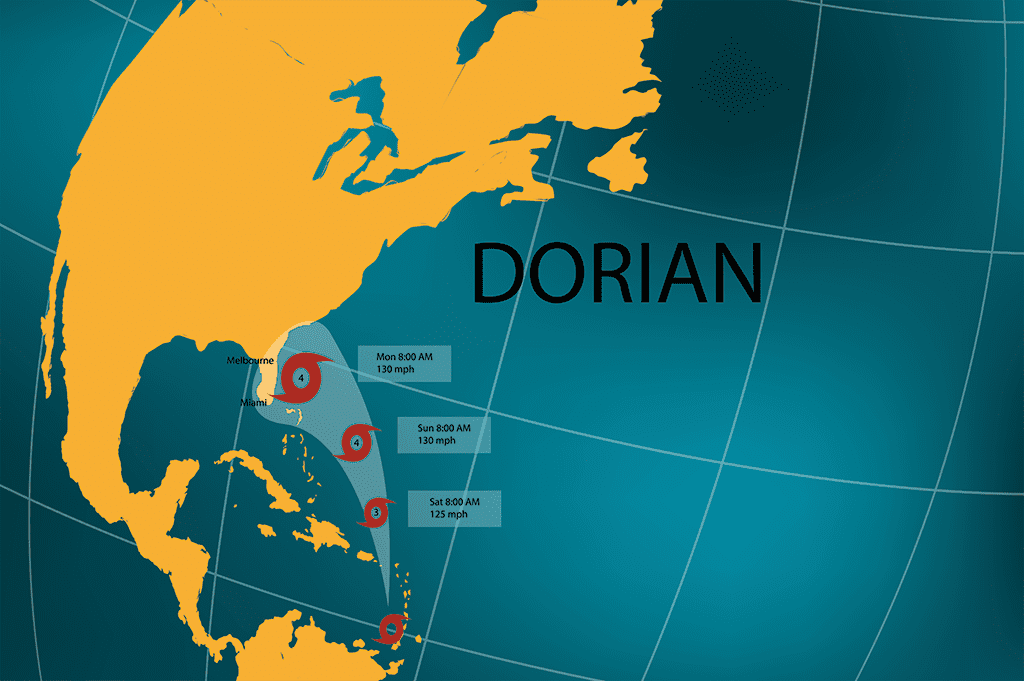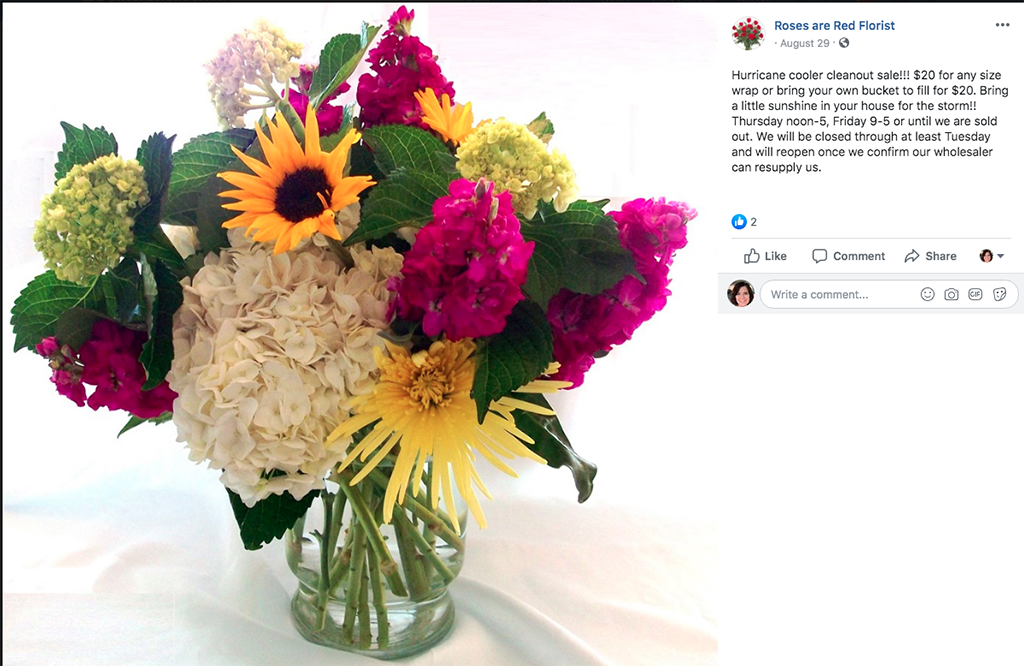
It was a nerve-wracking holiday weekend for importers, growers, wholesalers, retailers, suppliers and transportation companies in Florida and along the southern East Coast, as Hurricane Dorian — the strongest storm on record to hit the Bahamas — made its way toward the United States.
Many industry business owners prepped for the storm with closures, schedule changes and sales to move inventory in advance of the hurricane. And people aren’t out of the woods yet: As of Wednesday afternoon, Dorian, now a Category 2, had largely left Florida behind and was moving closer to the Carolinas, with chances for landfall there increasing.
Initial reports from the Bahamas, which bore the brunt of the storm for nearly two days, indicate the death toll and property destruction could be devastating there.
Industry members in the U.S. starting prepping for the storm last week, particularly in South Florida.
“The only logistic issues are that the Ports of Ft. Lauderdale and Miami were closed Monday and Tuesday for incoming shipments, and along with the Ft. Lauderdale airport for outgoing shipments from noon Monday to noon Tuesday,” said Christine Boldt executive vice president of the Association of Floral Importers of Florida (AFIF).
Despite some flight delays, the Miami airport has remained open and truck lines have been running, with modified schedules in some instances.
Tim Dewey, group vice president of procurement, e-commerce, marketing and quality at DVFlora, said that last week his company “advanced shipments in early anticipation of having problems getting product into Miami and outbound on northbound trucks. All products arrived in time for customer deliveries Tuesday and Wednesday.”
Dewey said the concern now is the still uncertain “impact on northbound trucks coming up the I-95 corridor.”
Jana Register, director of sales and marketing at FernTrust, a cooperative of growers in Seville, Florida, was working with a reduced staff on Tuesday to prep and ship product. With a mandatory curfew in effect Tuesday, Register said “things are far from normal through Thursday I’m afraid.”

On August 29, Roses are Red Florist in Indiatlantic, Florida and Violets in Bloom in Melbourne, Florida, reached out to customers with a deal to help clear out their inventory, in advance of the storm.
Many retailers find themselves in wait-and-see mode — watching the forecast and trying to make plans. Around the area of potential impact, regional airports have closed or canceled flights and state governments, schools and local agencies have put disaster preparedness plans into action.
Andreia Boscato Muller, AIFD, of The Flower Studio in Altamonte Springs, Florida, in the central part of the state, said she doesn’t expect to get anything other than a little rain from the outer bands of the storm, but her shop was closed Tuesday, because her kids are out of school.
Farther north, in Charleston, South Carolina, Clara Varga-Gonzales of Fleurish Consulting and the former owner of Tiger Lily, a retail florist with two locations, said she expects local businesses to be closed for at least part of the week. The South Carolina governor issued a mandatory evacuation Sunday for about 830,000 residents in the state’s coastal counties — but, as of Tuesday night, Gonzales said many people were staying put.
She added that, in recent years, she and her team saw a “significant” shift away from September weddings among local and destination brides, in part because of higher incidences of hurricanes, meaning that disruption to that segment of business could be minimized in this storm. “Many wedding planners aren’t taking weddings in September anymore and we started insisting on brides having event insurance for September and October weddings,” she said
Industry groups are also preparing to offer support to people affected by this storm, and others throughout the hurricane season, which began in June and officially continues through the end of November. The AIFD Foundation, for example, recently established the AIFD Foundation Catastrophic Fund. The foundation had previously created funds for specific purposes — to support victims of hurricanes Harvey and Irma, among other disasters — and the new fund is a reflection of the industry’s ongoing need, said AIFD Foundation CEO Lynn Lary McLean, AIFD.
“This fund provides the tools to address what we have been unable to in the past, so that we may better meet the needs of the people of this industry,” she said.
For more information, including how to contribute or apply for funds, visit aifdfoundation.org.
Mary Westbrook is the editor in chief of Floral Management magazine. Katie Hendrick Vincent is SAF’s senior contributing editor.



